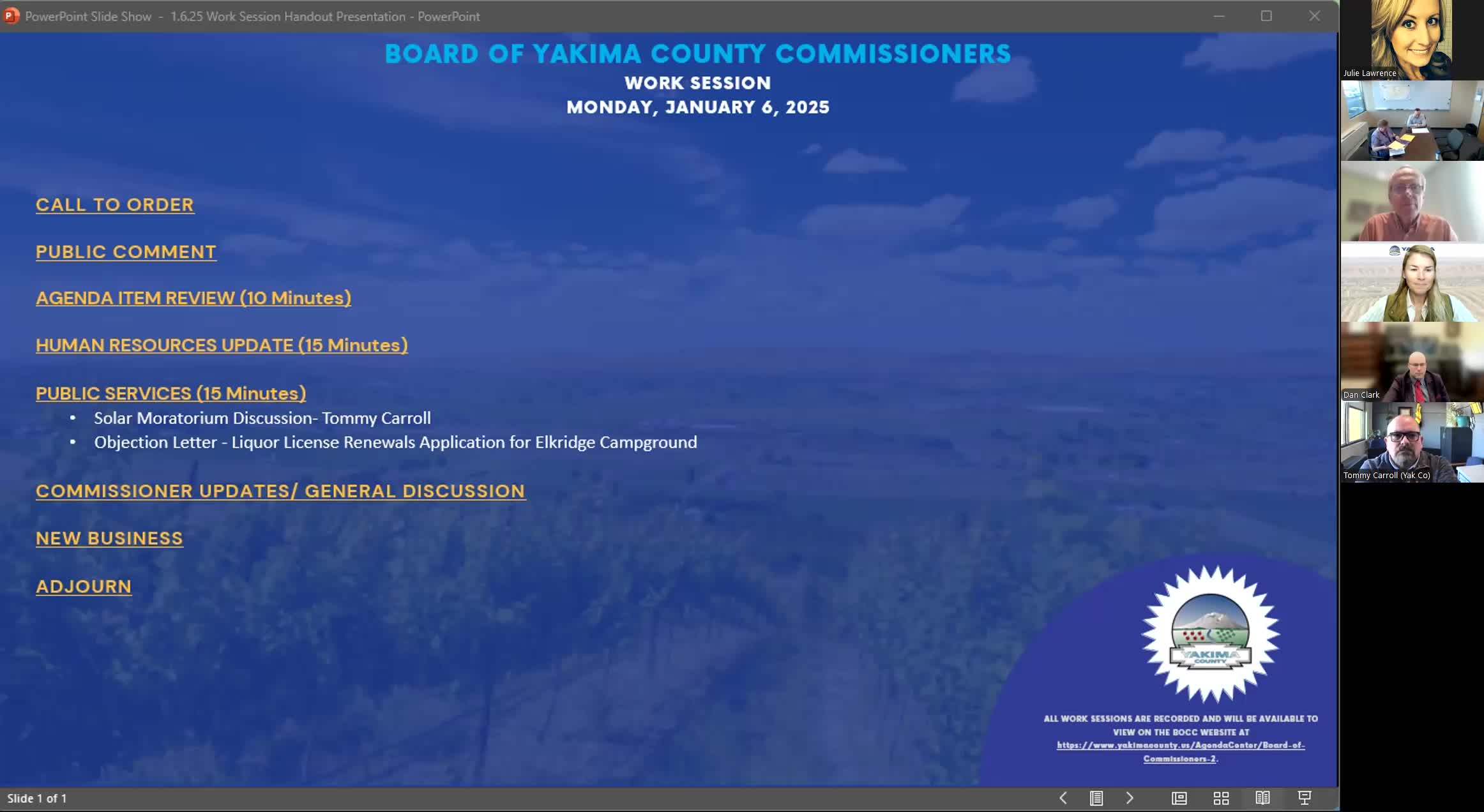Yakima County plans six-month extension of solar moratorium while discussing agrivoltaics and siting rules
Get AI-powered insights, summaries, and transcripts
Subscribe
Summary
County staff told commissioners they will seek a six-month extension of the moratorium on moderate-to-large scale solar facilities in unincorporated Yakima County and will work with the planning commission to draft agrivoltaics and siting rules to protect agricultural land.
Yakima County public services staff told the Board of Commissioners Monday that the county will seek a six-month extension of a moratorium on moderate- to large-scale solar facilities and will continue work with the planning commission to craft rules that allow agrivoltaics and clarify where large solar arrays may be sited.
Tommy, a county public services representative, said the extension will come before the board later this month and that staff plan to work with the planning commission starting in February to finalize code language addressing agrivoltaics and permitted uses on nonagricultural commercial structures. “Our current objective for, is to meet with the planning commission and try to work and finalize the rest of the solar work as it relates to agrivoltaics and looking at, solar language throughout our code to allow it as a permitted use for folks to put on their commercial structures,” Tommy said.
Tommy summarized guidance from a Commerce Department letter the county received: the state agency advised the county to either remove large-scale solar from agricultural designations, move potential sites into rural designations, or develop policies and regulations to allow agrivoltaics so that farming remains in production while solar coexists. “Their recommendation to us was either to take things out of the agricultural designation, put it into rural, or develop some sort of goals and policies and development regulations to allow, sold, basically solar as part of the agrivoltaic process where farmers can use it in areas where they would not remove agriculture at all,” Tommy said.
Commissioners expressed conditional support for agrivoltaics and careful public hearings on siting. Commissioner McKinney said, “I do think that the agrivoltaics is something that we can, you know, get behind because it doesn't take, ag land, out of production.” Commissioners also discussed potential siting on hillsides and the need for robust public hearings to gauge community reaction.
Several commissioners noted larger state and regional energy trends could affect local decisions, including upgrades to transmission lines and state-level decisions on energy sources. Commissioner Curtis said he is “anxious to see what the legislature will do or change this year” and mentioned pending initiatives and state energy demands as a factor in future permitting and infrastructure upgrades.
Staff and commissioners did not take a final vote on the moratorium extension at the meeting; Tommy said the extension will come before the board later this month and that the county intends to pursue code language revisions and public hearings with the planning commission.
